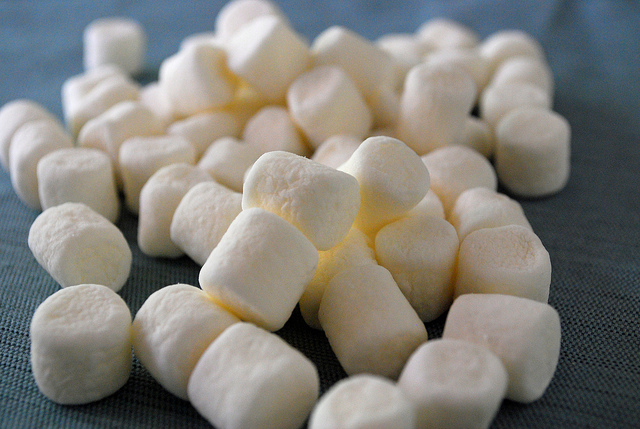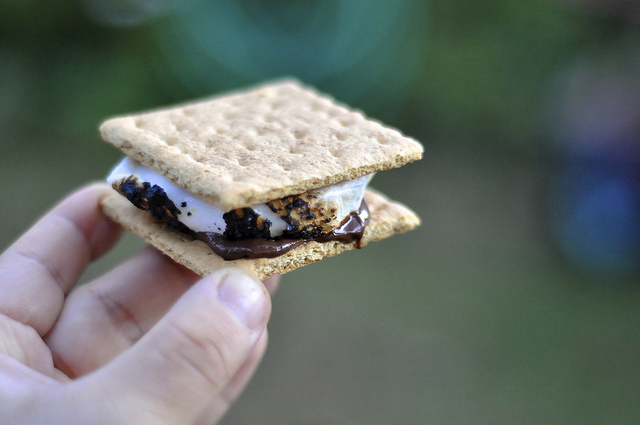
Marshmallows
Photo by Slice of Chic/CC, Flickr
Adapted from CBC News by Nancy Carson
Level 3
(Video, recipe and slideshow on next page)
In the late 1960s and early 1970s,
Walter Mischel designed an experiment.
Mischel is a psychology professor.
He wanted to study
self-control in young children.
The children were ages four to six.
Read the PDF.
“The Marshmallow Test”
The children got one treat.
The researcher gave each child
one marshmallow, pretzel or cookie.
Then she told the child
she was going out. She said,
“You can eat it now or
you can wait for me to come back.
If you can wait for me,
you will get two treats.”
Results of the test
Mischel tried the test with
children of different ethnic groups.
The results were the same.
About one-third of the children
could wait for the second treat.
Other children ate it right away.
Or a few minutes later.
Why are some patient?
All children wanted the treat.
The patient children did
many things while waiting.
They covered their eyes,
they sang songs,
they played with their clothes.
Or they played under their desk.
They “forgot” about the treat.
Time passed quickly for them.
Greater success as adults
Researchers studied these children for many years.
The researchers watched the children until the children became adults.
The children who waited were
more successful as adults.
The children who could not wait
often had trouble paying attention.
Many could not handle stress.
Many found it hard to keep friends.
Self-control can be learned
Mischel now believes that
self-control can be learned.
Children can learn ways to
wait for the second marshmallow.
Parents can teach a child
to wait for dinner,
to wait to open a gift, or to save money.
Not measuring self-control
The Marshmallow Test
did not measure self-control in kids.
It is not true that some kids
can wait and others cannot.
Very young children can learn ways
that help them to wait for something.
“They want the second marshmallow,”
says Mischel.
But what can the kids do to help them wait?
Beat your shortcomings
“We can’t control the world
but we can control
how we think about it.”
Even the smartest kids
need to do their homework
and turn off the TV.
“Intelligence is at the mercy
of self-control,” Mischel concludes.
Not about your personality
We can learn to control strong feelings,
save money, or say no to dessert.
The real challenge is turning
mental tricks into habits.
This requires years of careful practice.
It’s not just about marshmallows.
Links:
- Video: Oliver and Breanna take the marshmallow test: https://www.youtube.com/watch?v=ZC5JlnqsGBg
- Different ages do the test. Watch the video.
3. Have you heard of “s’mores”?
S’more: ( a shortened form of “some more”) a sweet snack which is a sandwich.
It is made with toasted marshmallows, chocolate and graham crackers.

Making a S’more is a special treat.
Photo by Christopher Penn/CC, Flickr
Recipe for s’mores:
http://whatscookingamerica.net/Cookie/Smores/Smores.htm
Photo credits for slideshow:
Roasting marshmallows Photo by Melissa Hillier/CC, Flickr
Marshmallows burn easily Photo by U.S. Department of Agriculture/CC, Flickr
Roasting/campfire Photo by edgeplot/CC, Flickr
Gooey goodness Photo by Ken Bosma/CC, Flickr